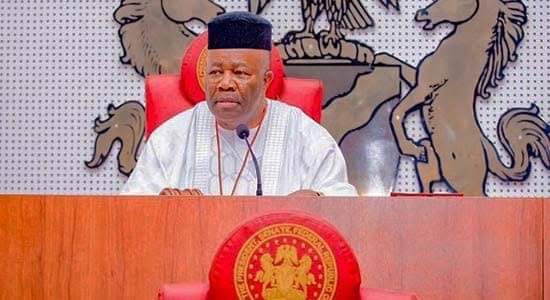UK Police Officer In Trouble For Telling Nigerian Women Not To Report Abusive Husbands
A Metropolitan Police officer is facing an internal investigation after a video resurfaced, showing him advising Nigerian women not to call the police on their husbands.
The video, filmed at Divine Restoration International Church in Camberwell in 2018, has sparked outrage after it was widely shared on social media.
In the footage, the officer, standing at the church pulpit alongside three other officers, can be heard addressing a predominantly female congregation in a mix of English and Yoruba, a Nigerian language.
He discussed issues of knife crime and family dynamics, at one point suggesting that sons may not listen to their mothers but might respond to their fathers.
However, the comments that have drawn the most backlash came when the officer appeared to suggest that women should “manage” domestic issues with their husbands rather than seek police intervention.
The remark has been condemned by domestic abuse charities, who stress the importance of reporting abusive behavior.
The Metropolitan Police confirmed that the incident is being investigated, with a spokesperson stating: “We take allegations of this nature extremely seriously, and they are currently under review.”
The resurfacing of this video comes amid growing concerns about the representation of Black officers in the UK’s police force.
Recent figures show that two UK police forces have no Black male or female officers, sparking further discussions about the diversity and cultural sensitivity within law enforcement.
The footage allegedly shows the officer stating that Nigerian women, upon arriving in the UK, start behaving “rudely” towards their husbands and should avoid calling the police on them, advising them to “manage it.”
The UK Mirror confirmed that the footage has been referred to the Metropolitan Police’s standards unit.
Afruca, a children’s safeguarding group in Africa, expressed outrage in a formal complaint to the Met, criticizing the officer for allegedly encouraging women to stay in abusive relationships instead of seeking police assistance.
Debbie Ariyo, Chief Executive of Afruca, who saw the video, told the UK Mirror: “[The officer said], ‘Do not call the police on your husband, but manage it.’”
Other police staff reportedly stood by as the officer addressed the women.
Ariyo expressed her anger, saying, “What do you mean by ‘manage it’? Domestic violence isn’t just physical abuse—it includes emotional and sexual abuse rooted in cultural practices. If a woman is being abused, she shouldn’t call the police because it will be her fault if the man is removed and the children are affected?”
She added that such remarks minimize the seriousness of domestic violence, stating, “It’s as if Nigerians don’t matter. Even children are victims in homes with domestic violence.”
Ariyo also highlighted that violence against Black women is often overlooked, pointing to Metropolitan Police figures showing that out of the 21 femicide victims in 2022, nine (43%) were Black, a higher rate than any other ethnic group.
“We’ve talked about violence against women but haven’t focused on violence against Black women, particularly in African and Caribbean communities. Hearing a police officer, who should know the UK Domestic Violence Act of 2021, telling women not to report abuse feels like an attack on Nigerian women.”
She further criticized the context, noting, “Given the number of police officers convicted of harming women, this is particularly disturbing.”
Detective Chief Superintendent Seb Adjei-Addoh responded to the Mirror, confirming the video had been referred to the professional standards team.
He explained, “The incident took place during an informal talk by a police staff member at a church in Camberwell in 2018. The comments made by the officer do not reflect the Met’s stance on domestic abuse and were wrong. Victims of domestic abuse should always feel able to report it to the police.”
Adjei-Addoh highlighted the Met’s efforts in tackling domestic abuse, noting that dedicated investigation teams work closely with local authorities and charities to support victims and encourage reporting in Lambeth and Southwark.













































